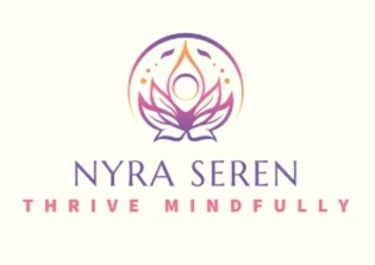How Ancient Wisdom Can Inspire Modern Health
Discover how ancient wisdom and traditional practices can enhance modern health and wellbeing with practical tips for daily life.”
9/26/20253 min read
In today’s fast-paced world of fitness apps, superfoods, and trending diets, health advice often feels overwhelming. But sometimes, the most powerful guidance comes not from what is new, but from what is timeless. Ancient wisdom, whether from Ayurveda, Yoga, or other traditional practices, offers insights that modern science is only beginning to validate. Let’s explore how ancient knowledge can inspire healthier living in today’s modern world.
1. Food as Medicine: The Ayurvedic Perspective
Centuries ago, Ayurveda taught us that food is more than just fuel. It is medicine. The principle of “Ahara” (diet) emphasizes eating according to your body type, the seasons, and your digestive strength.
Ancient Wisdom: “You are what you digest, not just what you eat.” Ayurveda encourages warm, freshly prepared meals, mindful eating, and the use of spices like turmeric, ginger, and cumin to aid digestion.
Modern Connection: Today, nutrition science highlights the role of anti-inflammatory foods, probiotics, and mindful eating in gut health, echoing what Ayurveda has taught for millennia.
Try This: Rather than chasing every new diet trend, begin by making small adjustments like adding seasonal vegetables, cooking with digestive spices, and eating freshly prepared meals. Consistency matters more than intensity.
2. The Healing Power of Breath
Breath has always been seen as the bridge between body and mind. Yogic practices like Pranayama (controlled breathing) were designed to calm the mind, improve energy, and strengthen the body.
Ancient Wisdom: Techniques like Anulom-Vilom (alternate nostril breathing) and Bhramari (humming bee breath) were recommended to balance emotions and improve concentration.
Modern Connection: Research shows that deep breathing lowers stress hormones, improves oxygen flow to the brain, and even strengthens the immune system. Today, breathing practices are integrated into therapies for anxiety, sleep disorders, and hypertension.
Try This: Start by dedicating 5 minutes each morning to conscious breathing. Even small, consistent practice can create noticeable calm and focus.
3. The Rhythm of Nature: Aligning with Seasons and Sunlight
Our ancestors lived in harmony with natural cycles, rising with the sun, sleeping early, and adjusting diets with the seasons.
Ancient Wisdom: Texts emphasized waking before sunrise (Brahma Muhurta), seasonal detox practices, and eating fruits and vegetables that matched the time of year.
Modern Connection: Science now confirms that our body has a natural circadian rhythm. Disrupting it, through late-night screen use, irregular sleep, or skipping sunlight, can affect metabolism, immunity, and mental health. Aligning with daylight, even briefly, boosts Vitamin D and stabilizes mood.
Try This: Sync one daily activity with natural light. Such as stepping outside for a morning walk or pausing for sunlight breaks during work hours.
4. Movement as a Path to Balance, Not Punishment
Ancient practices like Yoga and Tai Chi were never about burning calories or chasing a body type. They were about balance. Strengthening the body while calming the mind.
Ancient Wisdom: Gentle yet consistent movement was encouraged for longevity and inner harmony. Yoga, for instance, was designed to prepare the body for meditation.
Modern Connection: Unlike intense workouts that sometimes lead to burnout or injury, today’s experts stress sustainable movement. Yoga, Pilates, and mindful walking are now globally recognized for improving posture, flexibility, and mental well-being.
Try This: Choose movement you enjoy. Whether it’s yoga, walking, or dancing. What matters is consistency, not intensity.
5. The Art of Rest and Silence
In ancient traditions, silence (Mauna) and rest were seen as essential for mental clarity and emotional balance. People would spend time in nature, meditate, or observe quiet reflection.
Ancient Wisdom: Rest wasn’t considered laziness. It was seen as sacred renewal for the mind and spirit.
Modern Connection: Neuroscience shows that downtime is when the brain consolidates memory, processes emotions, and sparks creativity. Mindfulness retreats and “digital detox” days are modern versions of this age-old practice.
Try This: Create a short evening ritual without screens. Can be anything... journaling, sipping herbal tea, or simply sitting in silence before sleep.
6. Herbal Remedies and Preventive Care
Long before pharmaceuticals, people turned to herbs and natural remedies for healing. Turmeric, tulsi (holy basil), neem, and ashwagandha were household staples.
Ancient Wisdom: The focus was on prevention rather than cure. Daily rituals like sipping herbal teas or oil pulling (gandusha) were designed to strengthen immunity and oral health.
Modern Connection: Science now recognizes the antioxidant and anti-inflammatory properties of these herbs. Preventive healthcare, through diet, supplements, and lifestyle, is once again a global trend.
Try This: You don’t need to adopt every herbal remedy at once. Begin by adding one simple practice, like drinking turmeric milk or tulsi (Basil) tea a few times a week.
Modern life often pulls us away from balance, but ancient wisdom reminds us that true health is not about extremes. It’s about harmony. By integrating these timeless practices into our lives, whether it’s mindful eating, conscious breathing, or syncing with nature, we can experience health in its truest sense: not just the absence of disease, but the presence of energy, clarity, and peace.
In the rush for what’s new, perhaps the real secret to wellness is remembering what was always known.
